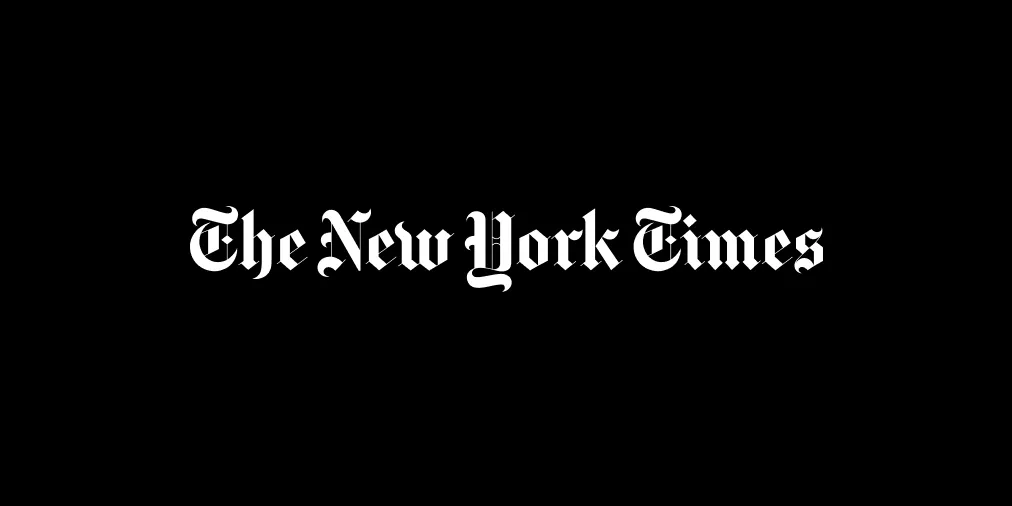Jane Bradley: Elizabeth, I've been covering nationalist right-wing politics in Britain for years, and I have to say I never thought I'd be partnering with our religion correspondent to write about British politics. We just don't have the same kind of religious identity in politics over here.
We have lawmakers who are religious, of course, but they don't usually talk about Christian values on the campaign trail or see their faith as driving policy. It feels so different from America.
Elizabeth Dias: Different is an understatement! I've covered religion and politics here for more than 15 years, and conservative Christianity has only gotten more fused with right-wing politics, especially since President Trump's rise to power. Conservative evangelicals and Catholics have reached such a height of power here, largely by joining forces with Trump, and they are setting their sights abroad. Which brings us to London.
Jane: Our article today revealed how a Christian legal group, the Alliance Defending Freedom, is working to change the political discussion around religion and abortion. Its British arm has positioned itself as a power broker between MAGA Republicans and Britain's rising populist movement -- specifically and most influentially, with Nigel Farage and his Reform U.K. Party.
A.D.F. frames its mission as being about free speech, which it says is in "crisis" in Britain. But the ultimate goal its lawyers said in an interview with me, is to roll back abortion rights in Britain. That's ambitious. Almost 90 percent of Brits support a right to abortion, which is legal within the first 24 weeks of pregnancy. It has wide cross-party support and Parliament voted in June to stop women from being prosecuted for abortions outside that limit. Although those who help them -- like medical staff -- still can be.
Elizabeth: Politically, Britain has definitely gone in the opposite direction of the United States. But I am fascinated that Brits generally assume that abortion rights will always be protected. The story in America also shows how sustained political pressure and political surprises, like Trump's 2016 election, can change long-held norms.
For example, even though Roe v. Wade was overturned, there's actually only one state where a majority of adults say abortion should be illegal in all or most cases -- Arkansas. So public opinion doesn't always correlate to political outcome.
Jane: Why do you think A.D.F. is focusing on Britain? Besides the political and cultural challenges, the law just works differently. Abortion access in England and Wales is legislated by Parliament. Courts can't overturn it, so the legal playbook that worked in the United States won't work in Britain, right?
Elizabeth: True, but A.D.F. thinks in terms of making incremental, long-term cultural change. In Britain, that means creating political alliances and bringing abortion into mainstream conversation. Britain has a lot of influence in Europe, so it's a good target. It's also part of a trans-Atlantic alliance that is growing during Trump's second term.
Jane: Yep, and at the heart of that alliance is Nigel Farage and his populist Reform U.K. Party. In public, the A.D.F. and Reform have been careful to keep their growing relationship quiet. But we found out that A.D.F. officials have quietly arranged briefings in Britain and invited Farage to speak to visiting congressional leaders. A.D.F. also brokered a secret meeting between Farage and top State Department officials in London.
Elizabeth: I thought it was incredibly telling when we learned that Farage is even using language of the Christian right in the United States -- like talking about how the two countries share "Judeo-Christian values."
Jane: I've been covering British politics for nearly two decades, and I couldn't recall a politician ever using that term. When I did some digging, I did see that Farage had started sporadically using it a couple or so years ago, but it's just not a term you usually hear on the campaign trail. And none of the other British political figures I spoke with understood the significance of the term either.
Elizabeth: The Americans we interviewed, though, all understood it. And they see it in the broader context of a movement to elevate the place of Christianity in American public life.
Jane: Farage used the term in a speech at the annual Reform Party conference last month. But I noticed he didn't mention abortion like he did when he testified at a congressional hearing in Washington just a couple days earlier. So it seems like he knows his audience.
For now, though, it seems like the most prominent shared talking point for both A.D.F. and Reform is criticism of the British government's record on free speech. That topic has obviously been driven to the top of the political agenda after the assassination of the conservative activist Charlie Kirk.
Elizabeth: I was at his memorial service in Arizona, where it was clear how tightly conservative Christianity and the government have merged here. The issues about free speech are only escalating, both here and in Britain.
